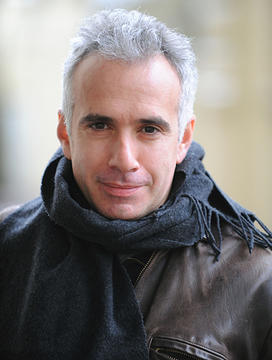Clifford Levy ’89 Shifts His Focus to Local News at The New York Times

Higher-ups considered the job so important that they made the unusual move of plucking Levy away from an elevated spot on the newspaper’s masthead. A two-time Pulitzer Prize winner, Levy had spent the better part of three years as the Times’ deputy managing editor responsible for the paper’s digital efforts.
The Times article announcing Levy’s appointment said that within the newsroom, he is considered an “energetic evangelist of the online-first mentality.” It also described him as belonging to a “cohort of Times editors” who could eventually succeed executive editor Dean Baquet.
The metro editor position had been filled on an interim basis following the resignation of Wendell Jamieson, who the Times reported left in April after being “accused of inappropriate behavior by at least three female employees.”
Levy said Times Publisher A.G. Sulzberger and Baquet made clear to him that they “are both very committed to local journalism in New York and feel that it’s core to the mission of the Times.” Earlier in his career, Sulzberger put in a stint on the metro desk.
Levy’s new post, announced in late July, comes at a time when New York City journalism is under significant economic pressure.
The Daily News, a longtime competitor on the local beat, laid off half its editorial staff earlier this year, and shortly after Levy took his new post, the Village Voice, an alternative weekly known for its hard-hitting local investigative reporting, shut its doors. The Wall Street Journal, which once sought to become a player in local New York regional news, has also scaled back.
In fact, the Daily News layoffs — which came shortly after Baquet first broached with Levy the possibility of the job switch — only intensified the pressure to make a statement with the hiring, Levy said.
“It confirmed to him the need to show that someone from the masthead would be running metro,” Levy said. “It was an unorthodox change, but he felt it was important for the Times to show the paper’s commitment to local journalism.”
The metro department — which covers New York, Connecticut, and New Jersey, with a particular focus on the New York City metropolitan area — has seen its staff decline somewhat since a peak in the late 1980s and early 1990s, but it is still among the most extensive of any major newspaper.
Levy is in his 28th year at the Times, spending virtually his entire career at the paper following his graduation from Princeton in 1989. On campus, Levy served as managing editor of The Daily Princetonian.
He began as a news assistant on the international desk, then was promoted to a reporter position on metro, which included a stint at the Albany bureau. Levy was a foreign correspondent in Russia between 2006 and 2011, then came back to New York to become deputy metro editor.
Most recently, Levy spent about five years filling senior roles overseeing the Times’ digital efforts. His projects included the Times’ “express” team, which handles digital news rewrite; its “smarter living” team, which does service journalism; its “reader center,” which handles engagement with readers; and its morning and evening briefings.
“I was not working that often with reporters. I was not in their stories directly editing or assigning,” Levy said. Instead, during this period he was charged with “creating new forms that feel native to the digital era and reaching a new audience on the phone.”
Levy said his experience in the digital arena is helping shape his approach to local news in his new position.
For competitors, “there’s the Daily News and the New York Post. WNYC radio and digital-only outlets like Gothamist are all strong,” he said. “But I think in the digital era, news organizations can’t just think about traditional competitors. They have to think about readers’ time.”
In other words, he said, the Times is also directly competing with platforms as far-flung as Twitter, Facebook, Snapchat, and Netflix.
“We still want to compete for stories, and be the first to report, and the best at storytelling. But we’re also competing for our audience’s time,” Levy said. “It’s important for news organizations to understand that. When readers pull out their phone, we want to make them go to us, not the others.”
Louis Jacobson ’92 is senior correspondent with PolitiFact. He overlapped with Levy for one semester as a cub reporter on The Daily Princetonian.











No responses yet